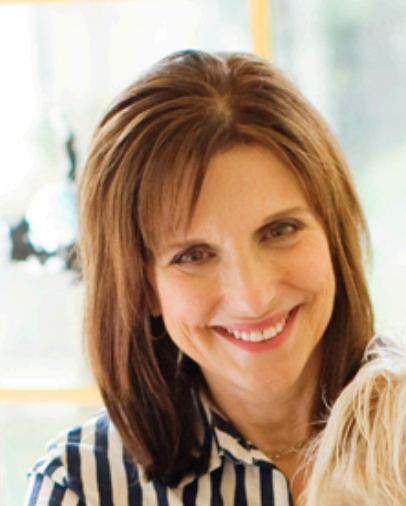I consider myself to be a kind, sociable person, but some days I feel short and grumpy. “Why has no one emptied the dishwasher?” I hear myself shouting. “Not right now,” I’ll snap in response to a request for help. I try to get perspective, using all the mindfulness tools at my disposal: from meditation to affirmations. But on those difficult days, inevitably when I haven’t slept well, empathy is in short supply.
It’s a relief to discover that I’m not turning into a Jekyll and Hyde! And if you can relate to feeling snippy when you haven’t slept well, neither are you. Scientific studies have found a direct correlation between sleep, compassion, and empathy. Health and performance psychologist, Inna Khazan Ph.D., a faculty member at Harvard Medical School, says when we don’t get enough shuteye, “We are more likely to have trouble regulating our emotions, so we feel anxious and irritable.” Compassion, Khazan says, is strongly associated with the parasympathetic (or relaxation) part of our nervous system. “Without enough deep rest, it’s more difficult to act kindly towards others and ourselves,” she says.
Studies show that poor sleep actually lowers our empathy, says Eti Ben Simon, Ph.D., a neuroscientist at UC Berkeley’s Center for Human Sleep Science. “Concern for people requires an understanding of what they want or feel, and we now have preliminary evidence that regions of the brain dealing with that understanding are impaired by sleep loss — which means the basis for empathy is lost,” she tells Thrive. Researchers have also discovered that sleep-deprived individuals are less likely to vote or donate to charity because of what Ben Simon describes as “a decreased interest in the well-being of others.”
A recent Berkeley study Ben Simon co-authored found that people who haven’t slept well also feel more loneliness and withdraw from interacting with others in much the same way as people with social anxiety do.
The researchers were surprised at another finding, too: others are less likely to want to interact with people who’ve slept poorly the night before, which can “aggravate the state of social withdrawal you feel,” Ben Simon says.
A small Swedish study found that sleep-deprived individuals could be perceived as less physically attractive and healthy. Ben Simon notes that without adequate sleep, our voices actually change, becoming flatter and more monotonous. “Emotional behavior is also profoundly affected. Individuals become more easily stressed and there is evidence of an increased tendency to blame others,” she explains.
On the flipside, after a good night’s sleep, because we are better able to regulate our emotions, we’re more compassionate, says Harvard’s Khazan. “On nights when I haven’t got enough sleep, I’ve been irritable with my kids. When I get sufficient sleep, which thankfully now is a lot more of the time, I can calmly say, ‘Okay, one at a time, what do you need?’ It’s much easier to step back and think about a helpful way to respond,” she says.
At work, if you’ve had a good night’s sleep, that translates into stronger connections and improved performance. “Well-rested people are better team players,” says Khazan, whose patients include sleep-deprived executives. “As their sleep improves, they say they’re nicer to their team members. When you make behavioral changes that allow you to sleep better, you will notice a positive effect the very next day,” she adds.
“There is no doubt that if everyone had good quality sleep, the world would be kinder and more compassionate,” says Thrive Global’s Sleep Editor-at-Large Shelly Ibach, the president and CEO of Sleep Number. “You can see the difference deep rest makes at our company, where the team is highly-engaged, mission-driven and genuinely care for one another. We make sleep a priority. Personally, when I’ve slept well (which is most of the time), I have more empathy and I’m happier.”
Ben Simon has learned about the crucial value of good rest from experience. “I had to stay up all night once a week for three months with our study’s participants,” she laughs, “And I could feel my social and emotional functions deteriorating.” Now she practices what she preaches. “I make sure I get close to nine hours sleep a night.”
Sleep is often viewed as something that takes us away from social activity, but, ironically, “sleep is a glue that biologically and psychologically binds us together as a species,” Ben Simon points out. “It reconnects us with our friends, colleagues, partners and even with strangers.”
If you struggle to get your seven to eight hours a night, these tips may help:
1. Stop the mindless scroll
Think about why you’ve been losing sleep and ask yourself whether it was worth the consequences, says Khazan. “Ask yourself, ‘Was I just mindlessly scrolling through stuff on my phone?’” Often people push back sleep to do things like scrolling or watching 20 more minutes of a show, thinking they’re winding down, but achieving the opposite effect.
2. Try this simple breathing exercise
Khazan, who is the author of the new book, Biofeedback and Mindfulness in Everyday Life, suggests trying a breathing exercise called heart rate variability (HRV) biofeedback. “It trains your heart rate to go up as much as possible and then to come down as much as possible. These changes in your heart rate are associated with greater health and resilience,” she says, explaining that the technique “supports good sleep and regulates emotions, including the ability to be more compassionate and empathetic.” Shift your breath down to your belly. Inhale for four seconds and exhale slowly and fully to the count of six seconds. Aim to do it for 10 minutes.
3. Meditate
Like breathing, meditation can help you relax at bedtime, says Khazan, who recommends Chris Germer and Ron Siegel’s guided meditations if you don’t already have a practice. And apps like Calm and Headspace offer specific meditations to help you drift off.
4. Keep your phone out of the bedroom
Both experts emphasize the importance of keeping technology out of the bedroom. “Your phone is the enemy of sleep because it’s a constant reminder of the waking world,” says Ben Simon. “Get into bed when you are sleepy to remind your body that the bed is only intended for sleep (and sex),” says Khazan, who advises against lingering in bed in the morning.
5. Check in with your own tiredness
“Get to know your own sleepiness,” says Ben Simon. “If you’ve watched your favorite TV show at night and are wondering whether to continue to the next episode, take a 10 minute break before you hit play and rest your eyes. If you start to feel sleepy, then you are ready for bed.” Save the show for tomorrow.


